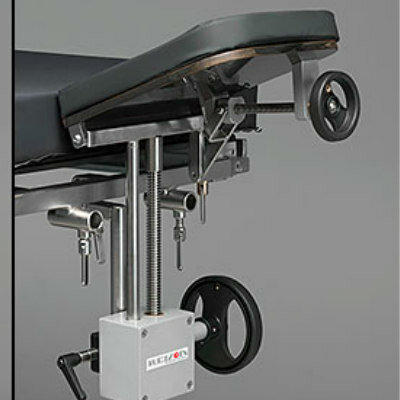SARS-CoV-2 Neutralizing Antibodies Fade Quickly in Recovering COVID-19 Patients After Symptoms Subside
|
By HospiMedica International staff writers Posted on 19 Oct 2020 |

Illustration
SARS-CoV-2 antibody levels in the blood of COVID-19 patients decline rapidly during the weeks after their bodies have cleared the virus and symptoms have subsided, according to a new study.
Researchers at the University of Montreal (Montreal, QC, Canada) are attempting to understand how the levels of antibodies change over time in order to optimize the use of blood plasma from recovering patients for treating those with severe COVID symptoms. Their research is also critical for understanding the efficacy of COVID-19 vaccines and finding out whether previously infected people face a risk of re-infection. Previous studies have revealed that antibodies against the SARS-CoV-2 spike protein peak two or three weeks following the onset of symptoms. In an earlier study of more than 100 patients by researchers at the University of Montreal, it was found that plasma’s ability to neutralize the SARS-CoV-2 virus declined significantly between three and six weeks after the onset of symptoms.
In the new longitudinal study, the team analyzed blood samples collected at one-month intervals from 31 individuals who were recovering from COVID-19. The researchers measured the levels of immunoglobulins that act against the coronavirus S protein and tested the ability of the antibodies to neutralize SARS-CoV-2. They found that the levels of Immunoglobulins G, A, and M that target the binding site declined between six and 10 weeks after the onset of symptoms and the ability of the antibodies to neutralize the virus also reduced over the same period.
Small studies have found that convalescent plasma can reduce the severity of illness and reduce hospitalization in COVID-19 patients, but it is yet to demonstrate benefits in randomized trials. Recovering patients cannot donate blood until at least 14 days after symptoms have subsided in order to allow their body to clear the viral particles, although the researchers have concluded that convalescent plasma must be collected during a specific window of time after recovery for deriving any clear benefits.
“We don’t want to transfuse the virus, just transfuse the antibodies,” said Andrés Finzi, Ph.D., at the University of Montreal. “But at the same time, our work shows that the capacity of the plasma to neutralize viral particles is going down during those first weeks.”
Related Links:
University of Montreal
Researchers at the University of Montreal (Montreal, QC, Canada) are attempting to understand how the levels of antibodies change over time in order to optimize the use of blood plasma from recovering patients for treating those with severe COVID symptoms. Their research is also critical for understanding the efficacy of COVID-19 vaccines and finding out whether previously infected people face a risk of re-infection. Previous studies have revealed that antibodies against the SARS-CoV-2 spike protein peak two or three weeks following the onset of symptoms. In an earlier study of more than 100 patients by researchers at the University of Montreal, it was found that plasma’s ability to neutralize the SARS-CoV-2 virus declined significantly between three and six weeks after the onset of symptoms.
In the new longitudinal study, the team analyzed blood samples collected at one-month intervals from 31 individuals who were recovering from COVID-19. The researchers measured the levels of immunoglobulins that act against the coronavirus S protein and tested the ability of the antibodies to neutralize SARS-CoV-2. They found that the levels of Immunoglobulins G, A, and M that target the binding site declined between six and 10 weeks after the onset of symptoms and the ability of the antibodies to neutralize the virus also reduced over the same period.
Small studies have found that convalescent plasma can reduce the severity of illness and reduce hospitalization in COVID-19 patients, but it is yet to demonstrate benefits in randomized trials. Recovering patients cannot donate blood until at least 14 days after symptoms have subsided in order to allow their body to clear the viral particles, although the researchers have concluded that convalescent plasma must be collected during a specific window of time after recovery for deriving any clear benefits.
“We don’t want to transfuse the virus, just transfuse the antibodies,” said Andrés Finzi, Ph.D., at the University of Montreal. “But at the same time, our work shows that the capacity of the plasma to neutralize viral particles is going down during those first weeks.”
Related Links:
University of Montreal
Latest COVID-19 News
- Low-Cost System Detects SARS-CoV-2 Virus in Hospital Air Using High-Tech Bubbles
- World's First Inhalable COVID-19 Vaccine Approved in China
- COVID-19 Vaccine Patch Fights SARS-CoV-2 Variants Better than Needles
- Blood Viscosity Testing Can Predict Risk of Death in Hospitalized COVID-19 Patients
- ‘Covid Computer’ Uses AI to Detect COVID-19 from Chest CT Scans
- MRI Lung-Imaging Technique Shows Cause of Long-COVID Symptoms
- Chest CT Scans of COVID-19 Patients Could Help Distinguish Between SARS-CoV-2 Variants
- Specialized MRI Detects Lung Abnormalities in Non-Hospitalized Long COVID Patients
- AI Algorithm Identifies Hospitalized Patients at Highest Risk of Dying From COVID-19
- Sweat Sensor Detects Key Biomarkers That Provide Early Warning of COVID-19 and Flu
- Study Assesses Impact of COVID-19 on Ventilation/Perfusion Scintigraphy
- CT Imaging Study Finds Vaccination Reduces Risk of COVID-19 Associated Pulmonary Embolism
- Third Day in Hospital a ‘Tipping Point’ in Severity of COVID-19 Pneumonia
- Longer Interval Between COVID-19 Vaccines Generates Up to Nine Times as Many Antibodies
- AI Model for Monitoring COVID-19 Predicts Mortality Within First 30 Days of Admission
- AI Predicts COVID Prognosis at Near-Expert Level Based Off CT Scans
Channels
Artificial Intelligence
view channel
AI-Powered Algorithm to Revolutionize Detection of Atrial Fibrillation
Atrial fibrillation (AFib), a condition characterized by an irregular and often rapid heart rate, is linked to increased risks of stroke and heart failure. This is because the irregular heartbeat in AFib... Read more
AI Diagnostic Tool Accurately Detects Valvular Disorders Often Missed by Doctors
Doctors generally use stethoscopes to listen for the characteristic lub-dub sounds made by heart valves opening and closing. They also listen for less prominent sounds that indicate problems with these valves.... Read moreCritical Care
view channel
Stretchable Microneedles to Help In Accurate Tracking of Abnormalities and Identifying Rapid Treatment
The field of personalized medicine is transforming rapidly, with advancements like wearable devices and home testing kits making it increasingly easy to monitor a wide range of health metrics, from heart... Read more
Machine Learning Tool Identifies Rare, Undiagnosed Immune Disorders from Patient EHRs
Patients suffering from rare diseases often endure extensive delays in receiving accurate diagnoses and treatments, which can lead to unnecessary tests, worsening health, psychological strain, and significant... Read more
On-Skin Wearable Bioelectronic Device Paves Way for Intelligent Implants
A team of researchers at the University of Missouri (Columbia, MO, USA) has achieved a milestone in developing a state-of-the-art on-skin wearable bioelectronic device. This development comes from a lab... Read more
First-Of-Its-Kind Dissolvable Stent to Improve Outcomes for Patients with Severe PAD
Peripheral artery disease (PAD) affects millions and presents serious health risks, particularly its severe form, chronic limb-threatening ischemia (CLTI). CLTI develops when arteries are blocked by plaque,... Read moreSurgical Techniques
view channel
World’s Smallest Laser Probe for Brain Procedures Facilitates Ablation of Full Range of Targets
A new probe enhances the ablation capabilities for a broad spectrum of oncology and epilepsy targets, including pediatric applications, by incorporating advanced laser and cooling technologies to support... Read more.jpg)
Artificial Intelligence Broadens Diagnostic Abilities of Conventional Coronary Angiography
Coronary angiography is an essential diagnostic tool used globally to identify coronary artery disease (CAD), with millions of procedures conducted annually. Traditionally, data from coronary angiograms... Read moreAI-Powered Surgical Visualization Tool Supports Surgeons' Visual Recognition in Real Time
Connective tissue serves as an essential landmark in surgical navigation, often referred to as the "dissection plane" or "holy plane." Its accurate identification is vital for achieving safe and effective... Read moreHandheld Device for Fluorescence-Guided Surgery a Game Changer for Removal of High-Grade Glioma Brain Tumors
Grade III or IV gliomas are among the most common and deadly brain tumors, with around 20,000 cases annually in the U.S. and 1.2 million globally. These tumors are very aggressive and tend to infiltrate... Read morePatient Care
view channelFirst-Of-Its-Kind Portable Germicidal Light Technology Disinfects High-Touch Clinical Surfaces in Seconds
Reducing healthcare-acquired infections (HAIs) remains a pressing issue within global healthcare systems. In the United States alone, 1.7 million patients contract HAIs annually, leading to approximately... Read more
Surgical Capacity Optimization Solution Helps Hospitals Boost OR Utilization
An innovative solution has the capability to transform surgical capacity utilization by targeting the root cause of surgical block time inefficiencies. Fujitsu Limited’s (Tokyo, Japan) Surgical Capacity... Read more
Game-Changing Innovation in Surgical Instrument Sterilization Significantly Improves OR Throughput
A groundbreaking innovation enables hospitals to significantly improve instrument processing time and throughput in operating rooms (ORs) and sterile processing departments. Turbett Surgical, Inc.... Read moreHealth IT
view channel
Machine Learning Model Improves Mortality Risk Prediction for Cardiac Surgery Patients
Machine learning algorithms have been deployed to create predictive models in various medical fields, with some demonstrating improved outcomes compared to their standard-of-care counterparts.... Read more
Strategic Collaboration to Develop and Integrate Generative AI into Healthcare
Top industry experts have underscored the immediate requirement for healthcare systems and hospitals to respond to severe cost and margin pressures. Close to half of U.S. hospitals ended 2022 in the red... Read more
AI-Enabled Operating Rooms Solution Helps Hospitals Maximize Utilization and Unlock Capacity
For healthcare organizations, optimizing operating room (OR) utilization during prime time hours is a complex challenge. Surgeons and clinics face difficulties in finding available slots for booking cases,... Read more
AI Predicts Pancreatic Cancer Three Years before Diagnosis from Patients’ Medical Records
Screening for common cancers like breast, cervix, and prostate cancer relies on relatively simple and highly effective techniques, such as mammograms, Pap smears, and blood tests. These methods have revolutionized... Read morePoint of Care
view channel
Critical Bleeding Management System to Help Hospitals Further Standardize Viscoelastic Testing
Surgical procedures are often accompanied by significant blood loss and the subsequent high likelihood of the need for allogeneic blood transfusions. These transfusions, while critical, are linked to various... Read more
Point of Care HIV Test Enables Early Infection Diagnosis for Infants
Early diagnosis and initiation of treatment are crucial for the survival of infants infected with HIV (human immunodeficiency virus). Without treatment, approximately 50% of infants who acquire HIV during... Read more
Whole Blood Rapid Test Aids Assessment of Concussion at Patient's Bedside
In the United States annually, approximately five million individuals seek emergency department care for traumatic brain injuries (TBIs), yet over half of those suspecting a concussion may never get it checked.... Read more
New Generation Glucose Hospital Meter System Ensures Accurate, Interference-Free and Safe Use
A new generation glucose hospital meter system now comes with several features that make hospital glucose testing easier and more secure while continuing to offer accuracy, freedom from interference, and... Read moreBusiness
view channel
Johnson & Johnson Acquires Cardiovascular Medical Device Company Shockwave Medical
Johnson & Johnson (New Brunswick, N.J., USA) and Shockwave Medical (Santa Clara, CA, USA) have entered into a definitive agreement under which Johnson & Johnson will acquire all of Shockwave’s... Read more
















